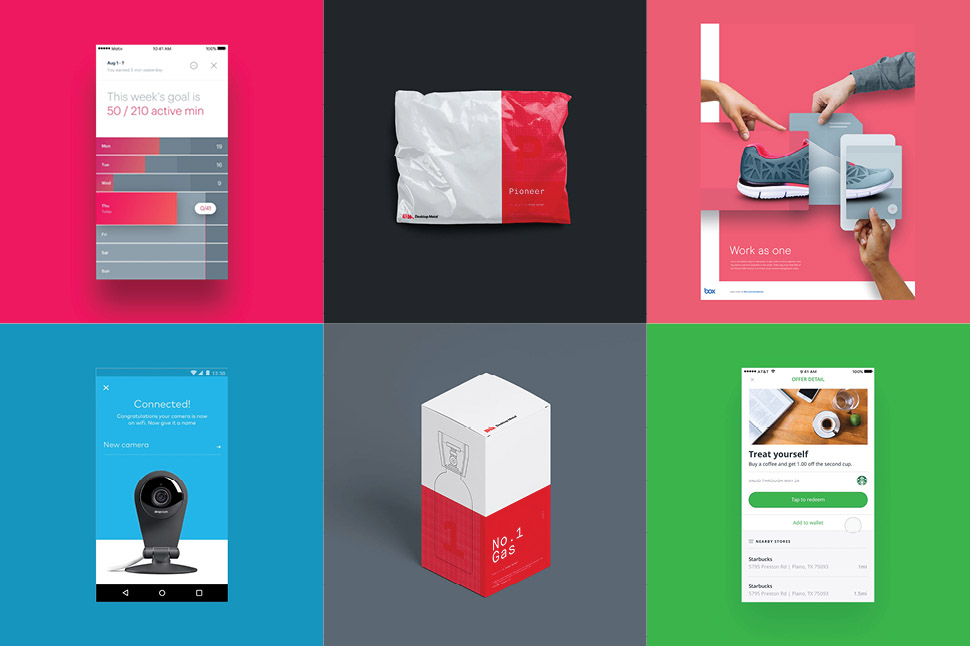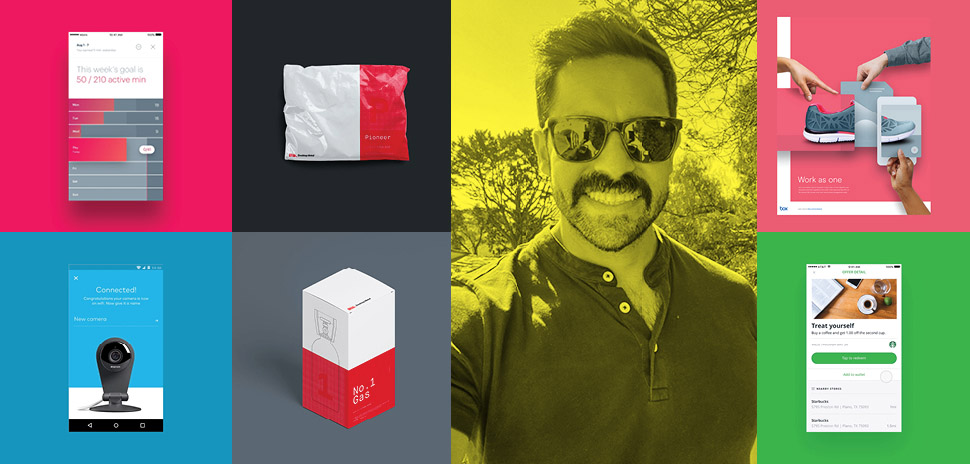As the world transitioned to digital amidst the COVID-19 pandemic last year, Dev Gupta—a Dallas native and UT Austin alumnus—was already working virtually, turning his freelance work into a fully functioning business.
His company, Not Dev, works with clients on their digital products and platforms to “solve problems through design.” Now headquartered in Dallas, the city that Gupta describes as “bullish,” the design studio is tackling UI/UX and brand design with a focus on believing good people produce good work.
Gupta has been in the business of digital marketing and product design for years, operating as a one-man business until about a month before the beginning of the pandemic in early 2020.
In 2015, Gupta designed the Dallas Innovates logo while he was working at SMU as a lecturer of creative advertising. He was passionate about entrepreneurship and startups and knew North Texas well, and immediately decided to get involved after hearing the initial idea.
“We wanted to do something that was simple, that was iconic,” Gupta says about his vision for the logo, ultimately landing on the circuit board monogram that exists today on our site today.
At the time, Gupta was in his mid-twenties doing freelance design and consulting work, in addition to lecturing. About three years into his position at SMU, he moved to San Francisco to “follow a girl.”
Although the move west was not initially professionally motivated, Gupta was able to grow his freelance business to the point of working with big clients like Twitter and Toyota. He found himself frequently flying between the Bay Area and Plano every couple of weeks, and began garnering interest from clients about becoming a full-time staffer who would provide ongoing design support.

Some of Gupta’s previous design work. [Images: Not Dev]
“The creation, or the idea, of Not Dev really grew out of the work that I was doing,” Gupta says, alluding to his seamless transition into the world of startups.
His already established connections in the private industry allowed for Not Dev to earn work almost entirely through word of mouth.
But his firm has a nontraditional way of working with clients. According to Gupta, the process is messy—his philosophy is to put something in front of the client at the very beginning and work from there.
“Our theory is that everything is hypothetical until it’s not,” he says. “So what we try to do is get in as fast as possible and create a prototype design, something the shareholders can react to, something that we can put in front of users.”
This method means Not Dev can bypass steps that tend to slow the development process down. The team tries to avoid numerous onboarding meetings, for example, by producing work on the front-end that keeps them from getting lost in abstract planning sessions.
Not Dev boasts that it was “virtual before it was cool;” Gupta says he envisioned it as a remote-first company without an office from the start. This structure lent itself well when the rapid shift to technological work came as a result of the ongoing pandemic.
Clients began reaching out to Not Dev asking for support on how to go to market faster in an online format. There were clients that Gupta thinks would have been interested in working with Not Dev regardless of the pandemic, but that may have had reservations about working remotely before it became the norm. It’s an “error that has been removed,” according to him.
Another exciting consequence of the pandemic for Gutpa is the dispersion of work and wealth from the concentrated coasts to other parts of the country with great potential for growth, including Dallas.

[Images: Not Dev]
While in San Francisco, Gupta remembered there was almost always someone joining in-person meetings from Zoom or Google Hangouts. Dallas, on the other hand, provides large growth opportunities for Not Dev because of the city’s high concentration of large corporates that were not working digitally before, but are now interested in digital transformation.
This is how a lot of user-interface design work is packaged and introduced to new clients.
“If you weren’t a technology company, you have to become a technology company,” he says. “It’s kind of an arms race. They have a lot of money, they have a lot of resources, they have a lot of impact and access.”
As Dallas’ large corporations make that transition, Not Dev’s goal is to be their core resource.
And working digitally has not lessened the company’s ties to its physical location. Already, most of Not Dev’s designers reside in Dallas. As a Dallas-headquartered company founded by a native, Not Dev has been making an effort to hire local, young talent to build a pipeline of people trained in the space of digital design.
“Our goal is to figure out how to contribute back to the [Dallas] community,” Gupta says. “I’m just really optimistic and hopeful about where things are headed right now.”
![]()
Get on the list.
Dallas Innovates, every day.
Sign up to keep your eye on what’s new and next in Dallas-Fort Worth, every day.


































































